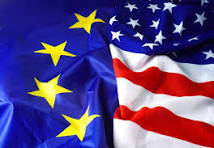By Qamar Bashir
Vice President J.D. Vance’s unwarranted, harsh, and undiplomatic remarks to European leaders deeply wounded the longstanding alliance between the U.S. and Europe. His speech was not just a critique—it was an outright attack on European traditions, governance, and society. He accused European nations of curbing illegal migration, suppressing democracy, restricting freedom of speech, and running inefficient institutions comparable to third-world countries. Furthermore, he charged Europe with exploiting
U.S. taxpayers by using American funds to bolster European infrastructure, stockpile
foreign exchange reserves, and strengthen military capabilities—all at the cost of making
America economically weaker.
Vance’s delivery was laced with arrogance and disregard for diplomacy. His speech, fully
endorsed by President Trump and the Secretary of State, signaled a clear policy shift,
underscoring a new era in transatlantic relations—one marked by divergence rather than
unity. The European Union interpreted Vance’s words as a direct insult. At the 61st
Munich Security Conference (MSC), Christoph Heusgen, its chairman since 2022, gave a
highly emotional response, warning that the common ground between the U.S. and
Europe was eroding. He vowed that Europe would defend its liberal values and
egalitarian traditions, even if it meant standing apart from its longtime ally.
Germany’s Defense Minister Boris Pistorius dismissed Vance’s speech as a gross
distortion of reality, emphasizing Europe’s unwavering commitment to democracy and
institutional integrity. Kaja Kallas, the European Union’s chief diplomat, interpreted the
remarks as an intentional attempt by the U.S. to provoke conflict with Europe. Former
Swedish Prime Minister Carl Bildt echoed these concerns, describing the speech as
‘significantly worse than expected’.
The once-unshakable transatlantic alliance is now unraveling at an alarming pace. For
decades, the U.S., the United Kingdom, and France wielded significant power within the international governance system, using their collective veto at the United Nations as a
formidable force. However, with the U.S. adopting an increasingly confrontational
stance, it risks isolating itself, pushing the world toward a new multipolar order. Power
centers are shifting, with Europe, China, and Russia emerging as independent forces,
while India continues to rise as an economic and geopolitical player.
One of the most significant implications of this rift is that Europe will no longer feel
obligated to align with the U.S. in future conflicts. Unlike in the past—when Europe was
pressured into supporting wars in Iraq, Libya, Afghanistan, and the intimidation of
Iran—European nations are now reconsidering their blind allegiance to American foreign
policy. Historically, U.S. legitimacy in global conflicts depended heavily on European
backing. But as trust wanes, European leaders are unwilling to continue sacrificing their
national interests for policies they no longer see as justified.
This unprecedented divide did not emerge overnight. Trump’s disdain for Europe laid the
groundwork for the current crisis. He persistently accused European nations of
freeloading off American financial contributions for defense, arguing that the U.S. had no
real stake in Europe’s security. He further criticized European leaders for allowing
demographic shifts due to pro-immigration policies, fueling nationalist rhetoric on both
sides of the Atlantic. His threat to occupy Greenland was yet another display of disregard
for European sovereignty. Now, with J.D. Vance’s antagonistic remarks adding fuel to
the fire, Europe’s patience has worn thin.
For the first time in modern history, the U.S. is actively alienating its closest allies,
triggering an identity crisis within the Western alliance. Europe, which once relied on
American leadership and protection, is beginning to reassess its position in the global
order. This shift carries two major consequences.
First, the U.S. may gradually forfeit its status as the world’s preeminent superpower.
Trump’s policies suggest that America no longer has the appetite—or financial
capability—to maintain global dominance. The cost of sustaining this position is proving
unsustainable, and rather than reinforcing its alliances, the U.S. appears willing to
relinquish them. For Europe, this could be an opportunity rather than a setback. Unlike
developing nations, European countries are wealthy and resourceful enough to sustain
their own defense and shape independent foreign policies without U.S. intervention. Over
time, they may move away from American influence, assert their collective strength on
the global stage, and address international crises on their own terms.
This would also free Europe from the obligation to align with the U.S. on controversial
geopolitical issues. Without the constraints of transatlantic loyalty, European nations
might adopt more pragmatic stances—cooperating with China and Russia when
necessary, rather than being bound by U.S.-driven narratives. This realignment could
significantly weaken American influence within international institutions, eroding its
ability to unilaterally dictate global policies.
However, history suggests that any vacuum left by a declining superpower is inevitably
filled by another rising force. If the U.S. continues its path of isolationism and
confrontational diplomacy, China is the only country with the economic strength and
strategic resources to assume that role. Whether the U.S. is truly prepared to cede its
global supremacy to China remains uncertain. Yet, if its current policies persist, this
transition may occur sooner rather than later.
Ultimately, international relations are dictated not by sentiment but by shifting interests.
The U.S.-Europe alliance, which has endured for two centuries, is now showing signs of
natural decay. The once-strong commonality of purpose and shared values is giving way
to nationalist and protectionist agendas. What were once minor disagreements have now
escalated into full-blown political conflicts, revealing deep-seated fractures within the
Western bloc.
The U.S., once the undisputed leader of the free world, now appears intent on
relinquishing its leadership. By pushing its allies away, it is voluntarily dismantling the
very system that secured its dominance for decades. The ultimate question remains: is
America prepared for the consequences of this seismic shift? If it continues on this
trajectory, the world order as we know it may be on the verge of an irreversible
transformation—one in which the U.S. is no longer the central pillar of global governance.




